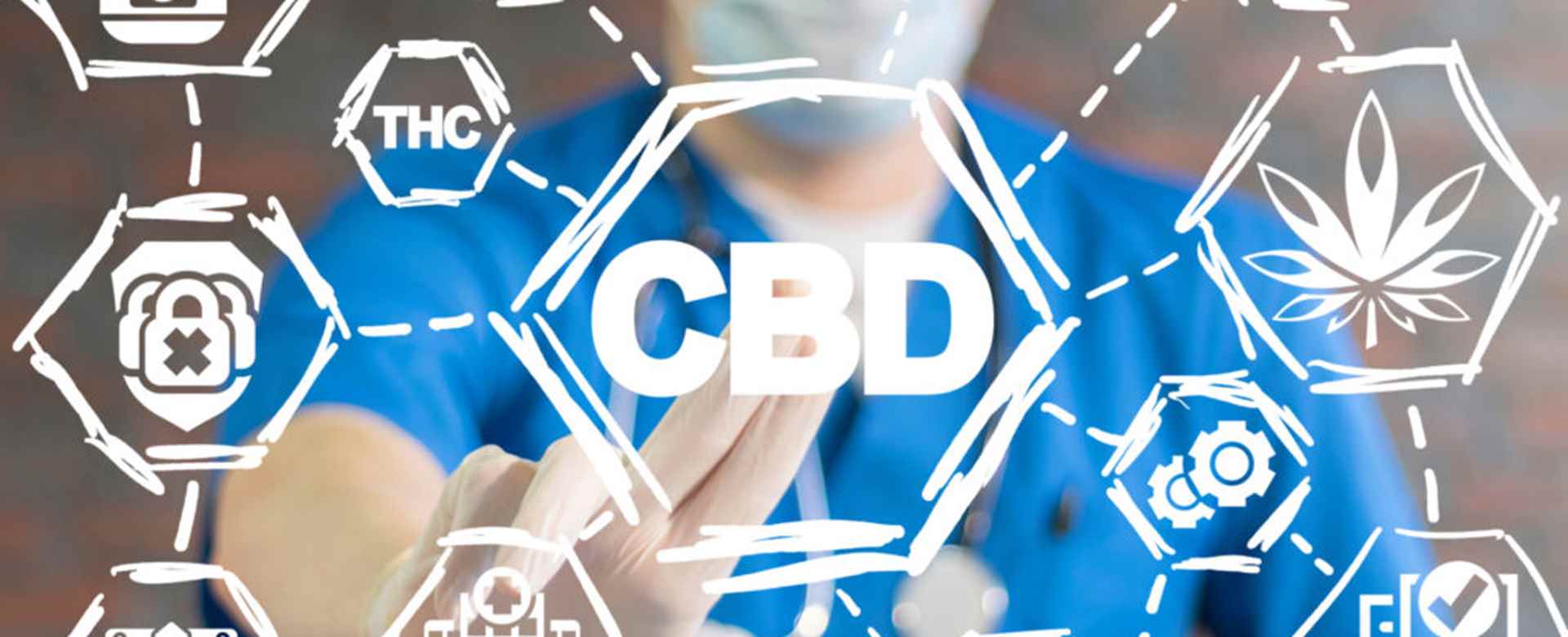Over the past year, you’ve most likely heard about CBD, or cannabidiol, in the news. The market for CBD is growing so rapidly that it’s predicted to surpass $15 billion by 2026.
CBD can be applied directly to the skin or taken orally. Although it comes from the cannabis plant, it is non-intoxicating like THC, or tetrahydrocannabinol. THC has psychoactive properties, meaning it can cause you to get high. Some people confuse CBD with hemp, which was legalized with the passage of the 2018 Farm Bill.
Though there are many touted benefits of CBD, it is not regulated by the U.S. Food and Drug Administration (FDA). Part of the reason for that lack of regulation is because there isn’t yet enough scientific evidence to back up its use. CBD has only received FDA approval in the U.S. in the drug Epidiolex, a medicine utilized to treat seizures associated with Lennox-Gastaut syndrome (LGS) or Dravet syndrome (DS).
Dipesh Navsaria, a UW-Madison Health pediatrician at American Family Children’s Hospital, notes that there are “a lot of claims made about CBD’s effects with low amounts of research to back them up.” He also says that it’s really important to remember that CBD products are “entirely unregulated, which means these products don’t need proof that they do anything.”
CBD typically doesn’t cause many side effects but can interact with other medications and effectuate diarrhea, drowsiness and dry mouth at higher dosages. A report from the World Health Organization (WHO) noted that “in humans, CBD exhibits no effects indicative of any abuse or dependence potential.” The report also stated that “at present, no public health problems (e.g. driving under the influence of drugs cases, comorbidities) have been associated with the use of pure CBD.”
Popular CBD Uses
Available through numerous products, CBD is used by some to treat the following:
- Inflammatory bowel disease
- Seizures
- Depression
- Inflammation
- Migraines
Approximately 80 percent of chronic pain suffers who took part in the study report substituting cannabis for traditional pain medications (both opioids and benzodiazepines) after experiencing fewer side effects and better symptom management. Some research has shown that CBD may help lessen anxiety for both those addicted to opiates or dealing with schizophrenia or psychosis. According to Medical News Today, potential uses of CBD include treating nausea, cancer, appetite loss, eating disorders, Alzheimer’s disease, glaucoma, multiple sclerosis and muscle spasms.
Relevant CBD Research
Though there have been a limited number of studies in the U.S. on CBD, and more are needed, a few have been completed. One from the European Journal of Pain, which used an animal model, found that applying CBD oil in a transdermal method could help lower back pain and inflammation resulting from arthritis. An article from Harvard Health Publishing included information on a study that illustrated how CBD impedes hard-to-treat inflammatory and neuropathic pain.
The benefits associated with CBD sound promising, but it’s important to do your own research before purchasing any such products. A study by a researcher at Penn Medicine that was published in the Journal of the American Medical Association (JAMA) found that approximately 70 percent of CBD extracts sold online are either over or under labeled, causing potential serious harm to consumers. Some sellers of CBD products offer a certificate of analysis (COA), which states that their product isn’t filled with prohibited and harmful synthetic toxins or laced with illegal THC.
Healthcare professionals and industry leaders expect CBD to gain more traction and be utilized among providers’ care plan for patients. Read about more trends in the healthcare industry on the AMR blog.
Sign up for Updates:
Privacy Details
By submitting this form, you are consenting to receive marketing emails from: Advanced Medical Reviews, LLC. You can revoke your consent to receive emails at any time by using the Unsubscribe link, found at the bottom of every email.
